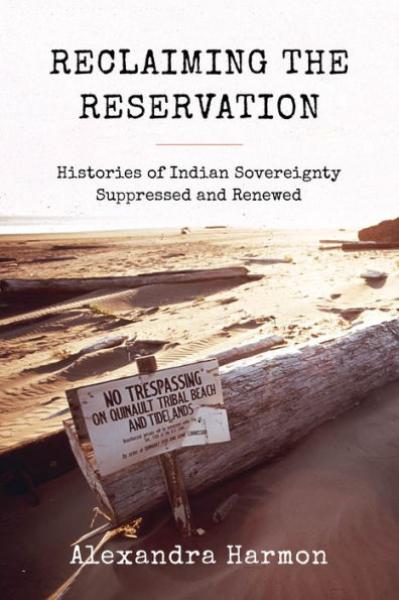Description
In the 1970s the Quinault and Suquamish, like dozens of Indigenous nations across the United States, asserted their sovereignty by applying their laws to everyone on their reservations. This included arresting non-Indians for minor offenses, and two of those arrests triggered federal litigation that had big implications for Indian tribes' place in the American political system. Tribal governments had long sought to manage affairs in their territories, and their bid for all-inclusive reservation jurisdiction was an important, bold move, driven by deeply rooted local histories as well as pan-Indian activism. They believed federal law supported their case.
In a 1978 decision that reverberated across Indian country and beyond, the Supreme Court struck a blow to their efforts by ruling in Oliphant v. Suquamish Indian Tribe that non-Indians were not subject to tribal prosecution for criminal offenses. The court cited two centuries of US legal history to justify their decision but relied solely on the interpretations of non-Indians.
In Reclaiming the Reservation, Alexandra Harmon delves into Quinault, Suquamish, and pan-tribal histories to illuminate the roots of Indians' claim of regulatory power in their reserved homelands. She considers the promises and perils of relying on the US legal system to address the damage caused by colonial dispossession. She also shows how tribes have responded since 1978, seeking and often finding new ways to protect their interests and assert their sovereignty.
"In the landmark 1978 case Oliphant v. Suquamish, the Supreme Court ruled that no Indian tribe can lawfully prosecute non-Indians. This decision had far-reaching effects in subsequent disputes about the jurisdiction of American Indian tribes, the terms of their relationship to the United States, their powers as political entities, and the significance of Indian reservations. Yet, even though few developments have highlighted the tensions, hopes, and fears associated with American Indians' unique political-legal status as clearly as contemporary tribal governments' assertion of jurisdiction over non-Indians, that subject hasn't received the attention it deserves from historians. The Non-Indian Problem recounts the history of tribes' desire for inclusive jurisdiction and the circumstances that encouraged them finally to act on that desire in the twentieth century. The manuscript focuses on the legal battles of the Quinault and Suquamish tribes beginning in the 1960s and culminating in the 1978 decision, with an epilogue addressing the consequences of that ruling"--
Reclaiming the Reservation should be essential reading for anyone interested in federal Indian law and policy andis useful for those who want to know more about how historians and judges tell stories about the past.
--Western Historical Quarterly[Harmon] provides an informative context behind the 1978 Oliphant v. Suquamish decision, which removed tribal jurisdictions over non-Indians. This background elucidates the history of tribal jurisdiction over non-Indians, numerous court decisions favoring tribal sovereignty, the evolution of Indian-issue lawyers, tribal decision makers, the place of activists in the campaigns for sovereignty, and case studies of both the Quinault and Suquamish reservation issues. Students of policy and law will benefit from the extensive analysis of the Oliphant case, which includes plausible alternative approaches that might have made the tribal position more effective.
--Choice
Product Details
- University of Washington Brand
- Jul 26, 2019 Pub Date:
- 0295745851 ISBN-10:
- 9780295745855 ISBN-13:
- 424 Pages
- 8.9 in * 6 in * 1 in Dimensions:
- 1 lb Weight:




